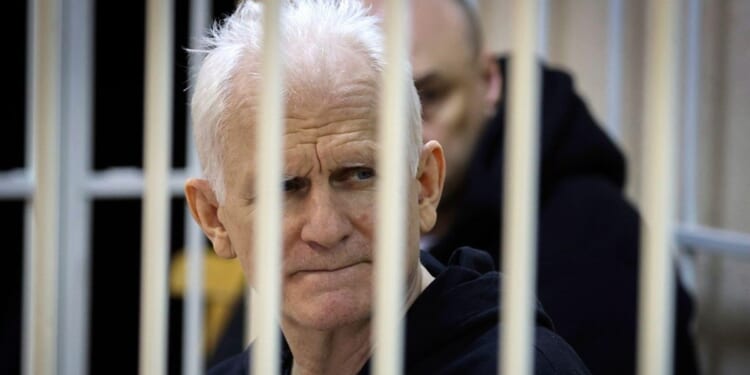THE importance of faith to Christian detainees in Belarus has been described by a former inmate, Uladzimir Matskevich, after he was released with 51 other political prisoners and deported to neighbouring Lithuania this month.
“In the difficult conditions of prison, faith saves,” Mr Matskevich, a Lutheran philosopher and educator, said. He was sentenced in June 2022 to five years in a penal colony for “grossly violating public order”.
“When I was in prison, I felt nothing now depended on me — I was alone and should hold on, without betraying myself or God. This strange feeling of freedom accompanied me throughout my term.”
Mr Matskevich spoke after being freed on 11 September by the regime of Alexander Lukshenka. President Lukshenka began his seventh term after the January election in which he received 86.8 per cent of the votes, despite international sanctions.
In a website interview with the Belarus Christian Vision organisation, Mr Matskevich said that imprisonment had spared him from feelings of “guilt and responsibility” at being unable to act effectively. He hoped that Belarusians would be saved from “feelings of hatred and vindictiveness”.
He was one of several leading Protestants released with US assistance. The group included Vitaly Bondaruk, an Evangelical blogger who was also sentenced to five years for “inciting dissension” and insulting and defaming “representatives of power”.
Dozens of other Protestant, Orthodox, and Roman Catholic ministers have faced arrest in Belarus since 2020, when President Lukashenka’s re-election was contested and followed by mass protests and harsh repression.
Several of them are among 1178 Belarusian inmates currently recognised by human-rights groups as political prisoners. They include an eminent RC theologian, Ales Bialiatski, the winner of the 2022 Nobel Peace Prize.
In his interview, Mr Matskevich said that his notebooks, which drew on intensive Bible readings and summarised his “path to God”, had been confiscated by prison guards. He was grateful for consistent “support and prayers” from the German Evangelical Church, the EKD, while he was on hunger strike and in solitary confinement.
Christian Vision’s co-ordinator, Natallia Vasilevich, said that any form of activity which failed to reflect support for Mr Lukashenka — including “being Christian, praying, and holding independent opinions”— could be branded a “political crime” in Belarus.
“It’s essential that these cruel and absurd arrests and sentences are publicised,” Ms Vasilevich said. “Clergy are being used as hostages for use in talks with the West. They’ll only be freed if this benefits the regime, such as by securing the lifting of sanctions.”

















